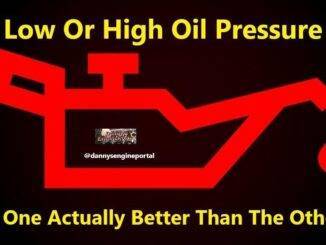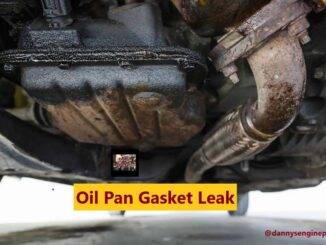Zinc additives in engine oils, have been recommended by most engine manufacturers for years.
So, why do we have lower zinc and phosphorus levels, in modern engine oils.
Consequently, the American Petroleum Institute (API), has regulated the amount of zinc additives level, to .08 percent.
Because, of the harmful effects, Zinc Additives have on catalytic converters and emission control systems. So, the latest (API) formulations, are aimed at extending the life of, catalytic converters.
Around 1996 most of the (OEM)s had already started manufacturing, (OHC) engines with roller followers. Consequently, allowing them to use, lower zinc-phosphorus anti-wear additives.
Today, the use of (API) approved oils in performance applications, will likely lead to trouble. For instance, during flat lifter camshaft break-in periods.
Unfortunately, All This Has Left A Path Of Devastation, And A Lot Of Pointing Fingers.
This has left the average hot-rodder, confused and uncertain, as to the best course of action.
Various Parties Have Blamed Some Of The Failures On:
- Camshaft manufacturing quality control.
- Inferior flat lifters.
- The aggressiveness of today’s modern cam profiles.
- Engine oil formulation.
Most of the serious complaints, cropped up around the time that major changes occurred. In both the flat lifter manufacturing industry, and in the formulation of passenger car and light-duty truck engine oils.
Many older engines experience, a short period of time, during engine start up, where critical lubrication is insufficient. Mostly, between metal-to-metal lubrication points, when using modern oils with, reduced amounts of ZDDP/ZDTP.
Most Engine And Engine Component Manufacturers, Recommend Zinc Additives For Flat Lifter Break-in.
Many will void warranties, if this minimum is not found in the oil sample you supply. Most often, when returning broken parts for warranty. For this reason, many manufacturers produce their own zinc additives or oils, with supplementary zinc included. GM offers its own EOS break in oil, with additional ZDDP.
Experts say that the additives in (API) blends, will no longer cut it, in a racing or performance engine. There is no denying, that (API) oils for the most part, work very well. Mostly, in late model engines. And, where there are roller cams and much less friction, than in high powered racing engines
“ZDDP” Is The Predominant Anti-wear Additive, Used In Crankcase Oils. It Is A Class Of Additive, Rather Than One Particular Chemical.
Not all Zinc (ZDDP) additives, react under the same level of heat and load. Zinc has different “Burn” rates. Some Zinc additives have slower “burn” rates. And, require more heat and more load, to activate than other Zinc additives.
Passenger car engine oils typically feature, a faster burning Zinc, than Diesel Engine Oils. Due to the lower compression ratios found in gasoline engines, compared to compression ignition diesel engines. As a result, not all “High Zinc” oils have the same activation rate.
Detergent additives “compete” against Zinc in the engine. Detergents are additives, that clean the engine. But, detergents don’t distinguish between sludge, varnish and Zinc. Consequently, it cleans all three away. The “old school” theory on engine break in was, to run non detergent oils. Because, this allowed for greater activation, of the zinc additive in the oil.
Characteristics of zinc and detergents, determine how quickly and to what extent, an oil will provide sacrificial boundary film protection.
So, After All This Confusion, What Do You Do About Zinc Additives !!
On Late Model Engine With Roller Lifters
Use the factory recommended oil. And, always keep up to date with your maintenance.
On Flat Lifter Camshafts
There is a long list of great racing oils and additives out there. But, they are not all the same. I would think if your are looking for a great racing oil. You must have a lot of friends and colleges out there, doing the same thing.
Ask the guy beside you, as they have most likely gone through it. I hate to say it but, it’s cheaper to learn from someone else’s mistakes.
Conclusion
So, every oil producer out there, will tell you, that theirs is the best. But, seeing is believing and not all applications, require the same engine oil.
BY DANNY BENDER




